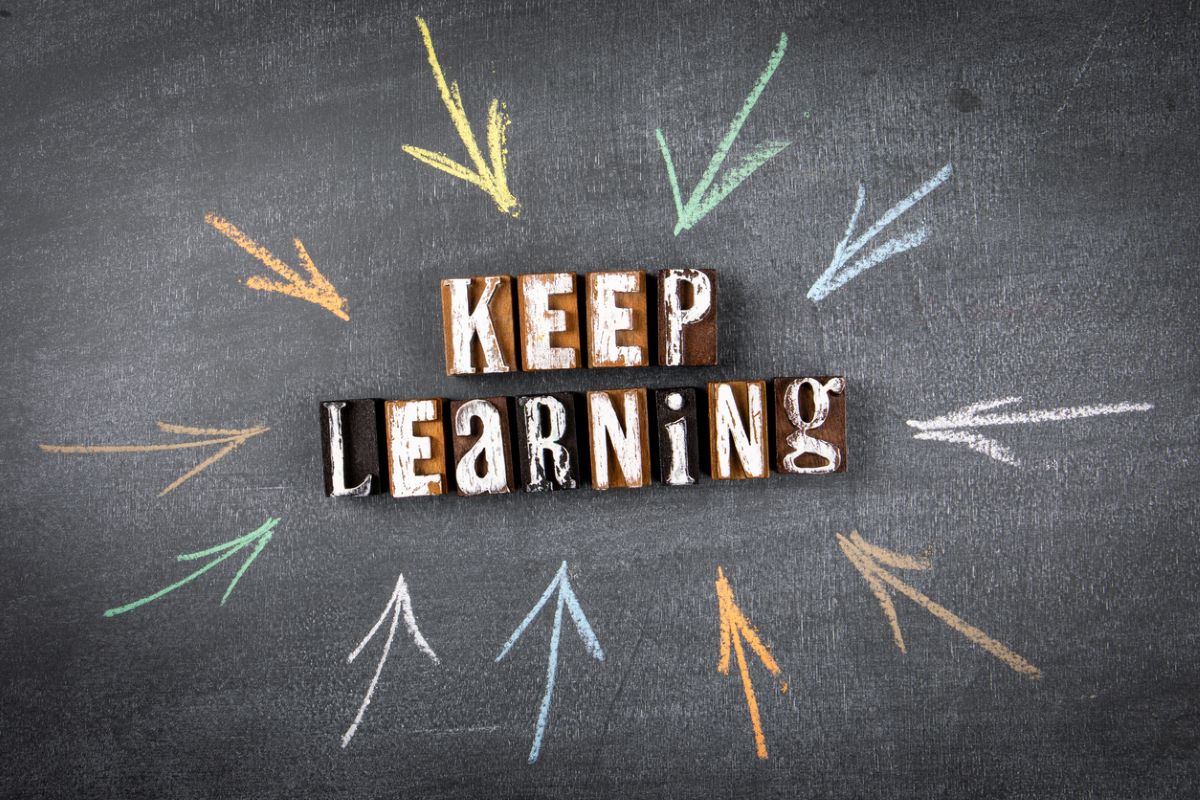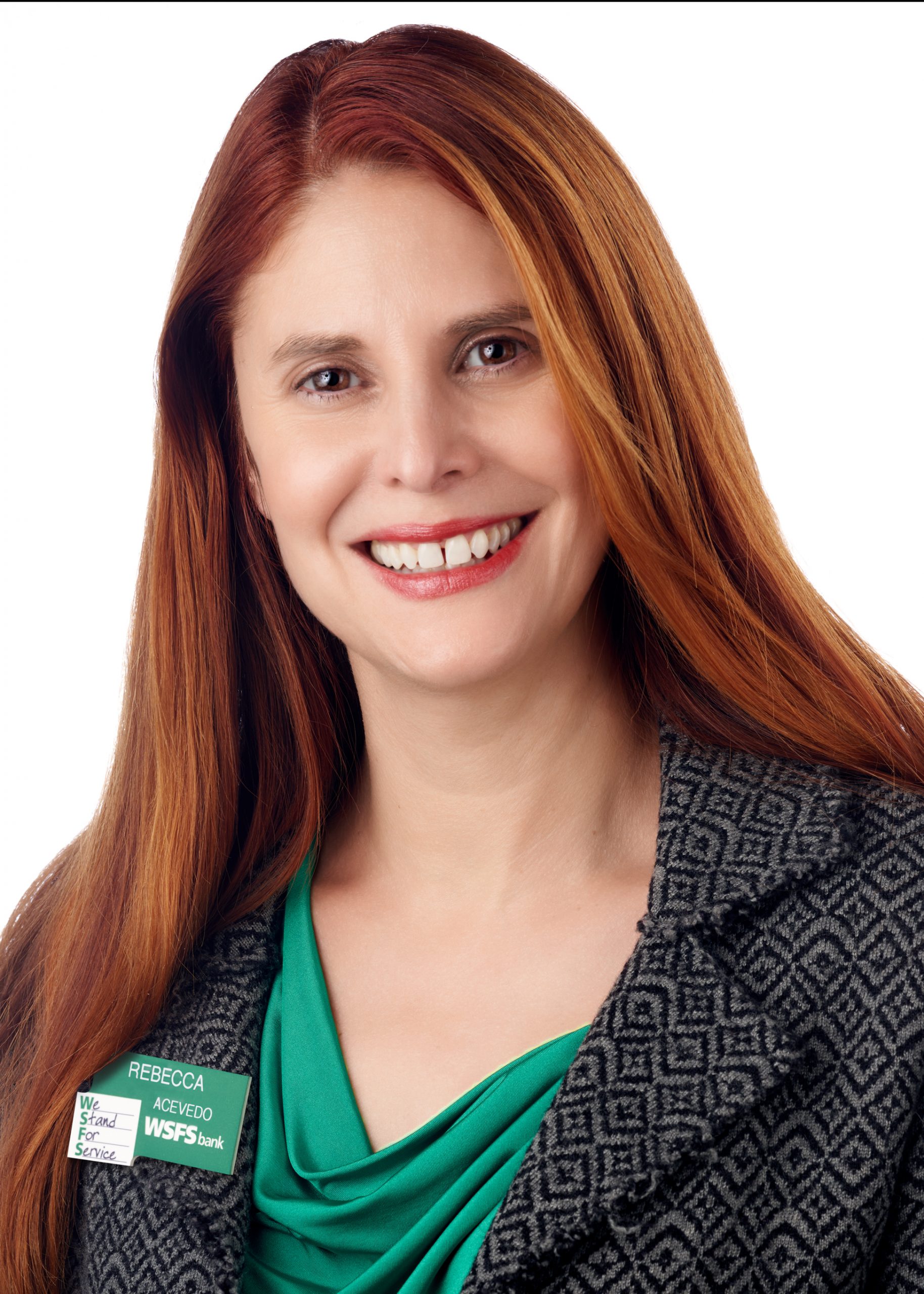How Rebecca Acevedo, WSFS Bank’s director of communications, stays ahead of the game
The accomplished financial services executive shares about the importance of continuous learning and analyzing metrics–and how comms pros can remain indispensable.

You never know where a career in communications will lead.
Many people have to take a long, winding road before settling into a successful career path. But for Rebecca Acevedo, VP, director of communications for WSFS Bank, it’s been a pretty straight shot. After landing her first corporate gig at a bank, she’s remained in financial services ever since. And steadily risen in the ranks all along through a willingness to learn and a determination to deliver on key business outcomes.
Now a vice president and director of comms, she shares wisdom accumulated from an impressive career:
Ragan: Can you briefly share about your career path? How did you end up in communications and in your current role?
Acevedo: Lucky for me I found communications in college my junior year. I had two great internships in marketing and PR and then from there I moved into nonprofit, which really helped me test and learn in all areas of communications.
I quickly found that I had a passion for PR and telling stories to engage with people and brands. My first corporate job was at a local bank in the marketing department, and I have been in financial services ever since.

Rebecca Acevedo
Ragan: What advice would you give comms pros to help them remain relevant in a post-pandemic landscape?
Acevedo: Read, read and read more.
I believe in being a continuous learner. You will never know everything, and it is important to stay on top of trends and new things in your field. I also think communications skills scale. You can do a variety of jobs, so be open to different opportunities and industries. I never thought I would end up in financial services, but it has so many facets and plays a big role in people’s lives, and communications plays a big role in helping with that.
In my job today, I oversee social media, public relations, content and affiliate marketing and internal and executive communications. I was an English major in college. I learned these different skills by taking various types of roles across big and small companies.
Ragan: How can comms pros get a better seat at the decision-making table right now?
Acevedo: I am glad to say that I have been seeing a shift the past few years with many comms pros already having a seat at the table. Companies are continuing to value the role communications play inside and outside of their walls. It is the link to associates, customers, advocates, stakeholders and so much more. I think the pandemic really highlighted the need for good communication and the necessary tools to share those communications.
Ragan: What are some tips you have for measuring communications success or progress?
Acevedo: Measuring is a key component to our communications programs. We want to show business outcomes, not just top-of-funnel results. While we still measure things like impressions, share of voice, and engagements, we are also using or working to create tools to measure content and how that content can generate leads.
We also measure brand lift and reputation. I am big believer in data and metrics and that every program should be based in some type of data–and that you need a baseline to improve your measurement.
Ragan: What are some top trends you suggest other communicators get out ahead of?
Acevedo: We continue to use the PESO (Paid, Earned, Shared and Owned) model in our work.
Communications is more than media relations. We are very efficient with our content and campaigns and try to leverage them across the PESO model. We are big on content marketing and using that to tell our story.
Ragan: What mistakes would you advise younger communicators to avoid?
Acevedo: I believe that when you fail you learn. So, it is OK to make mistakes as long as you take a step back and learn from it.
You grow the most when you are learning and being challenged. I tend to be a high performer and sometimes that comes with more and more work. And that is OK and good because you will learn new skills, but you also need to be cautious of burnout and really know your limits.
Ragan: How do you go about creating content for your “knowledge center?” What does that process look like?
Acevedo: It all starts with data!
We base our content on SEO searches around banking and financial education topics that our various audiences are searching for. We also look at seasonal and trending topics. We have guidelines to help focus on topics and the tone of our content.
From there, my team and I have an editorial calendar that we produce and manage six-eight weeks out. We produce articles, videos and visuals relevant to the story. We also make sure we are covering topics across our business lines. We work with our business partners on drafting the stories and then have an approval process. It is run like a news site.
Ragan: How can communicators do a better job of engaging remote or hybrid workers right now?
Acevedo: I believe open, genuine, frequent and transparent communications are important in any internal communications work, period.
I think the pandemic put a huge spotlight on that, and it showcased those who were lacking in this area and how quickly it needed to be fixed. At WSFS, we believe in over-communicating. We want our associates to know what is going on in the company, and sharing the “why” behind what we are doing helps foster connections and clarity around our purpose.
That becomes even more important when you can’t be in-person, to have continuous communications in-person. You must make a concerted effort to plan your communications and those connections that don’t happen organically when you are virtual. This is important for managers. They need to plan their check-ins and watercooler chats. You also need to make sure you have the right tools to be able to still do all types of communications.
At WSFS, we partner closely with HR on internal communications since communications and engagement go hand in hand. Together, we kept a pulse on our associates with frequent communications, surveys and check-ins. Their well-being guided all of our decision-making as a company, and they knew and appreciate that. My team of two support me with email content, scripts, videos, intranet management and executive communications.
If you’re an experienced internal comms practitioner who’d like participate in a “Secrets of Success” interview, please email robbyb@ragan.com.
The PESO Model© was created by Spin Sucks







